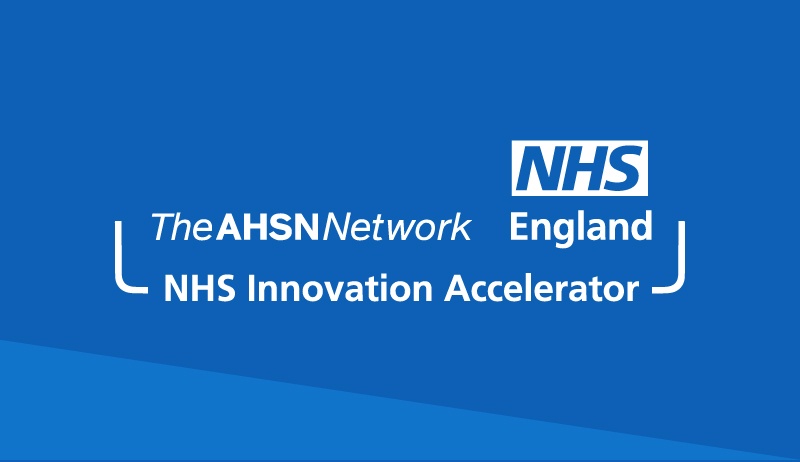GP parent, Clinical, Education and CPD
Recommendations for successful breastfeeding
By Guest Blogger Dr Anjali Gibbs, GP...
Dr Anjali Gibbs is recommended by our partners myHealthSpecialist.com
Doctors have very varied expertise on breastfeeding issues, often depending on whether they have personally experienced or supported a loved one through difficulty. Our teaching on the subject at medical school is very superficial and it is not part of the specialist training curriculum.
As a GP (with a paediatric background), I thought I would be well placed to manage to breastfeed my first daughter - but I was wholly unprepared for the emotional and physical pain that I experienced in those early weeks. The gaps in knowledge of some of my peers and healthcare professionals to whom I turned to for help has helped me form the basis for this blog.
Breastfeeding is fairly straightforward for many women, but in the UK only 1% of mothers are still exclusively breastfeeding at 1 year, and I am afraid we are struggling to support women to successfully breastfeed effectively. So, please consider passing these recommendations on to anyone who is expecting or feeding a small baby. I hope it helps navigate their breastfeeding journey:
- ‘Insufficient milk’: When I see mothers at a 6-week check, I often hear ‘insufficient milk’ as a common reason for stopping breastfeeding. However, the issue is often the perception of low milk supply based on a lack of understanding of what is normal, OR low milk supply as a result of issues with breastfeeding management. Parents’ confidence improves when they understand that:
- Milk supply is connected to milk removal. Frequent emptying is therefore the best way to meet baby’s needs. Babies may have several days when they feed more frequently and may often cluster feed for several hours at a time
- Output from a breast pump, feelings of breast fullness, a baby’s desire for contact and feed length are not reliable indications of a mother’s milk supply. The best indication is adequate weight gain which is monitored under the guidance of a health visitor clinic
- Regular waking remains the norm for the first few months of life (and less regular waking after that), so may not be connected to feeding
- Breast and nipple pain
- A baby’s positioning and attachment at the breast is the most common cause for nipple pain, damage and deeper breast pain (1)
- Less commonly, a mother may be dealing with a thrush or bacterial infection. Both mother and baby will need treatment if thrush infection is suspected, even in the absence of symptoms (2)
- If a baby appears to be gaining insufficient weight:
- Refer to a trained breastfeeding support worker or health visitor to assess breastfeeding management, e.g. assessing baby’s positioning and attachment, and frequency of feeds
- A breast pump can be used to stimulate milk supply further and it may be advised that the expressed milk is used to supplement normal breastfeeding
- Mastitis
- Non-infective mastitis is caused by blocked ducts, which can often be resolved without the need for antibiotic treatment. Once again, having an assessment of latch by a trained breastfeeding specialist (see below) is invaluable rather than repeated courses of antibiotics
- Infective mastitis requires antibiotic treatment; it can present with an infected nipple fissure (or crack) and symptoms not improving, or worsening, over 12-24 hours. It is imperative that the mother continues to feed on the affected breast throughout the course of treatment in ordinary circumstances
- A breast abscess should be considered if there is no improvement by 48 hours, and I would advise an emergency appointment with the GP or attending A+E
- Could it be tongue-tie?
- Approximately 1 in 10 babies have tongue-tie (ankyloglossia) which will sometimes cause nipple and breast pain and affect milk transfer. NICE guidelines state that evidence is adequate to support the use of tongue-tie division to improve breastfeeding outcomes
- An assessment can be made, and the tie cut, at an NHS tongue-tie clinic (usually a quick procedure that does not require anaesthetic; the baby is encouraged to feed immediately afterwards)
- Check out tongue-tie.org.uk for local, accredited tongue-tie practitioners
- Mental Health. I am often alarmed when mothers who have mental health problems are advised to stop their medication or to avoid breastfeeding at all.
- Very few drugs or even surgical procedures/scans require new mothers to stop breastfeeding. The Drugs in Breastmilk helpline (0844 412 4665) and the Breastfeeding Network (www.thebreastfeedingnetwork.org.uk) factsheets are reliable sources of up-to-date information, including the use of antidepressants alongside breastfeeding
- We know that not breastfeeding increases the risk of postnatal depression. Mothers who plan to, but are unable to breastfeed their babies, and mothers who experience breastfeeding problems are at even higher risk. Access to feeding support has implications for both baby’s and mother’s health (3)
- Where to find help:
- The local health visiting team will have resources on local breastfeeding support, which may include drop-in groups, clinics run by breastfeeding specialists such as IBCLCs (International Board Certified Lactation Consultants) and access to peer supporters
- There are several breastfeeding helplines in the UK, run by breastfeeding support groups such as the NCT, Association of Breastfeeding Mothers, Breastfeeding Network and La Leche League (4)
- Enjoy it!
Special thanks to the team at the GP Infant Feeding network https://gpifn.wordpress.com, especially Emma Pickett.
References
- https://www.breastfeedingnetwork.org.uk/if-breastfeeding-hurts-05-may-2015/
- http://www.unicef.org.uk/Documents/Baby_Friendly/Netwo rks/NIFN_statement_thrush_2014.pdf
- http://www.rcgp.org.uk/clinical-and-research/clinical-resources/~/media/Files/CIRC/Perinatal-Mental-Health/RCGP-Ten-Top-Tips-Nice-Guidance-June-2015.ashx
- http://www.nhs.uk/conditions/pregnancy-and-baby/pages/breastfeeding-help-support.aspx
Dr Anjali Gibbs, GP is recommended by our partners myHealthSpecialist.com
Lantum is a flexible resourcing solution that respects your relationships. Work when, how, and where you want with great health providers you know and great health providers you don't. At Lantum, we believe that smart and user-friendly technology can bring amazing benefits, but we understand that healthcare is all about the people. That’s why our community of health professionals deliver all kinds of supportive resources to help you every step of the way. Join us today.


